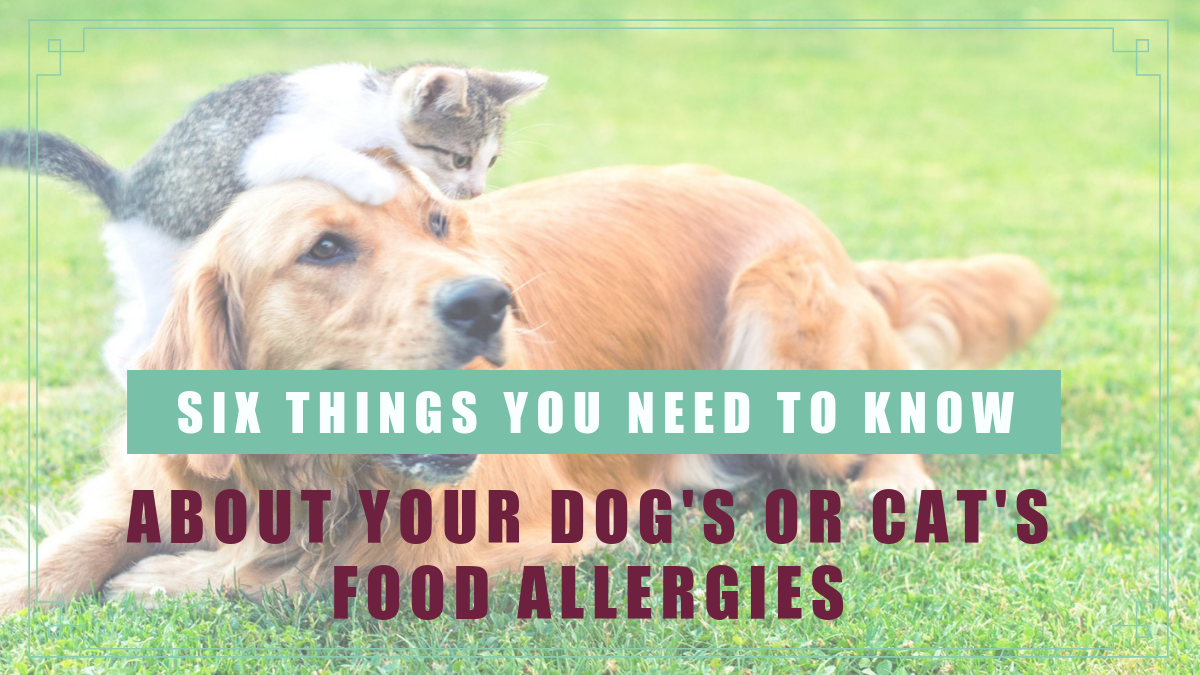Dogs and cats with allergies make up a large portion of my practice. Many itchy pet’s have food allergies that partially contribute to or are the cause of their symptoms.
Here are a few things you might not know about food allergies in dogs and cats:
1. When food allergies affect the skin, it commonly results in scratching.
Be careful! Just because your dog or cat is itchy, doesn’t mean he or she has food allergies. Other reasons like fleas, mites and infection should be ruled out by your veterinarian.
2. Recurrent ear infections are commonly related to food allergies.
It is REALLY important that you get each ear infection treated by your veterinarian. Many ear infections are never fully cleared up and appear to be recurring when in fact they are never fully healed. Please keep those check up appointments!
3. Dogs and cats that scoot their bum on the carpet may have a food allergy.
Chronically itchy backsides or chronic anal gland problems can be a sign of a food allergy or sensitivity. Work with your veterinarian if your dog scoots or has anal gland problems.
4. Some dogs are genetically more prone to food allergies.
It is thought that Labrador Retrievers are more predisposed to food allergies compared with other breeds. Other dogs I see frequently with food allergies are West Highland Terriers, Bull Dogs, and Golden Retrievers. I added this fact for those of you who feel personally responsible for every ailment that affects your beloved pet. It is not your fault!
5. More than 50% of over the counter diets made for allergies have trace amounts of allergens.
Eliminating the culprit food is the only way to definitively diagnose food allergies. There are many diets on the market that contain limited ingredients to help pet owners eliminate possible triggers. Unfortunately, many of these diets contain trace amounts of other foods. This can be problematic for very sensitive dogs and cats. To correct this problem a home cooked or a prescription diet is recommended.
6. Young animals, less than 6 months of age with allergies, frequently have a food allergy.
For these animals, identifying trigger foods can be helpful for lifelong health. If this problem is left unchecked, chronic inflammation may lead to other diseases. Don’t ignore allergies in puppies!
Want to learn more about how to feed your pet? Click here to get my FREE Pet Food Guide!
Have questions? Want to share your story about your pet’s food allergies? I would love to hear from you! Comment below.

Disclosure of Material Connection: Some of the links in the download above are “affiliate links.” This means if you click on the link and purchase the item, I will receive an affiliate commission. Regardless, I only recommend products or services I use personally and believe will add value to my readers. I am disclosing this in accordance with the Federal Trade Commission’s 16 CFR, Part 255: “Guides Concerning the Use of Endorsements and Testimonials in Advertising.”



My old senior boy has suffered with allergies nearly his whole life. It feels like we’ve tried every prescription food, supplement and variety of meds. None have ever seemed to give him relief. He is currently on apoquel and Zyrtec. Poor guy stopped gnawing bald patches but still drags his butt, rubs/scratches bloody spots on his face/head and the slightest petting makes him start chewing on himself…he’s so itchy. I know he has to be miserable but the vets have basically said outside of testing with a specialty vet, they’ve done all they can. I attempted to switch to a raw diet a few times but could never get him to take to it. Plus with my travel schedule, it’s nearly impossible to feed an all raw or wet diet.
Hi Melissa,
You are doing a great job! Allergies can feel so frustrating and discouraging.
It sounds like your veterinarian already suggested a veterinary dermatologist. I know it may feel like a big next step, but this may be a good route! They may be able to help you identify whether the allergies are food or environmental (or both!), and help with an approach.
Also, is there an integrative or holistic vet in your area who you can add onto the team as well? The American Holistic Veterinary Medical Association has a “Find a Vet” tab, and I wonder if having these two additions to the team could be helpful?
I know you are doing so much. Big hugs – please keep us posted.
Warmly,
Claire